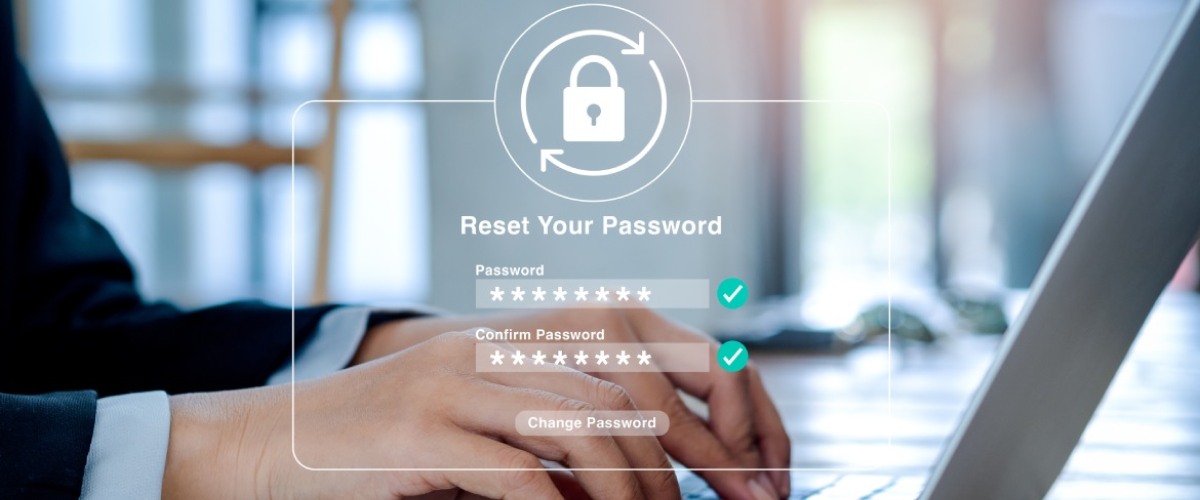Online banking offers great convenience and ease of use. However, it’s important to be cautious, as a small mistake can have serious consequences for your finances. Actions like sharing OTPs with strangers, having your password cracked by hackers, or compromising your account details can lead to disastrous outcomes.
To ensure your online banking security, it’s crucial to follow the best practices. That’s why Bank of South Texas emphasizes the importance of regularly updating your online banking passwords.
Regularly Updating Online Banking Passwords
To keep your online banking accounts safe and secure, it’s important to treat your password like a closely guarded secret. Regularly updating your online banking passwords is a simple yet powerful way to protect your money.
Scammers and phishers often target passwords to steal valuable banking information, so having an updated, strong password that you change regularly can go a long way in preventing these attacks.
Risks Associated with Stagnant Passwords
Using the same password for an extended period poses significant risks. Scammers have various methods to obtain your password, and sticking with password for too long increases the chances of them finding a successful way into your account. Moreover, failing to update your password after a cyber-attack leaves your account vulnerable to further breaches.
Another issue with stagnant passwords is the common practice of using the same password across different platforms for ease of memory. This is extremely risky, as using the same password for a banking app and a less secure app on your phone could lead to serious problems. Scammers could easily exploit this by accessing your less secure app and trying the same password on your banking app, potentially leading to severe cyber-attacks.
Regularly updating your password significantly reduces these risks. By changing your password frequently, you can prevent many scams, theft attempts, and phishing attacks. It’s also advisable to use different passwords for different platforms and change your banking password at least once every three months to protect yourself from unnecessary risks.
Practical Tips for Creating Strong Passwords and Implementing a Password Management Strategy
Creating a strong password is crucial to prevent it from being easily guessed or stolen. To create a strong password, remember a few key rules.
The right combination
Use a combination of capital letters, small letters, numbers, and symbols. This makes your password more complex and harder for scammers to crack.
Avoid using any words that make sense. Random gibberish is much harder to guess than simple, meaningful terms or words. If you need to include a name or word to help remember the password, consider using random words that are not associated with you. This makes it more difficult for a cyber attacker to guess your password based on your thought process.
Use a password management tool.
Using a password management tool instead of trying to remember your passwords is a good practice. Browsers like Google Chrome offer a password management system for free. This helps you use difficult and varied passwords for different channels without the risk of forgetting them.
A password manager can also generate strong, uncrackable passwords for you and store them securely. You only need to remember the master password to access the password manager, which you can memorize and keep to yourself. This way, you can keep your accounts safe without the hassle of remembering multiple complex passwords.
Common Misconceptions and Concerns Related to Password Security
If you follow best practices to prevent password leaks, you will thwarted most attacks on your bank account. Ensuring that you are not subject to some common misconceptions about password security is another way to guarantee further protection.
- One common misconception about password security is that adding numbers and symbols to letters is all it takes to keep a password safe. While this does make a password stronger, it doesn’t guarantee that your password will never be hacked. It’s just one step to make your password stronger than using a simple string of characters.
- Another myth is that a complex password doesn’t need to be long. The truth is, that complexity alone is not enough. A longer password, combined with complexity, adds randomness, making it more secure. Having a password with at least 16 characters, including a capital letter, small letter, symbol, and number, can make it extremely difficult for automated password guessers to crack, often taking trillions of years.
- Many believe that if they have a strong password, they don’t need multi-factor authentication (MFA). This is untrue. MFA significantly reduces the risk of account compromise, even if your password is leaked. By adding other factors like your phone or a biometric scan, you ensure that just knowing your password is not enough to access your account, making it much harder for cyber attackers to gain unauthorized access.
The Significance of Proactive Password Management
Proactive password management is essential in enhancing online banking security. It is one of the best ways to prevent cyber-attacks from ever happening. As a responsible user, you should always change your bank password every three months at minimum. You should also know the risks associated with stagnant passwords and the benefits that come from regularly updating them.
By following best practices for password protection and by using a password management systems, you can prevent most attacks on the banking accounts you own. Further, by knowing the misconceptions associated with password protection, you can avoid cyber-attacks and keep your accounts safe. Proactive password management is something everybody should do so that they are never vulnerable to any cyber-attack or scam. Prevention is always better than a cure.
If you believe your Bank of South Texas online banking security has been compromised, call us directly at (956) 687-4260.


